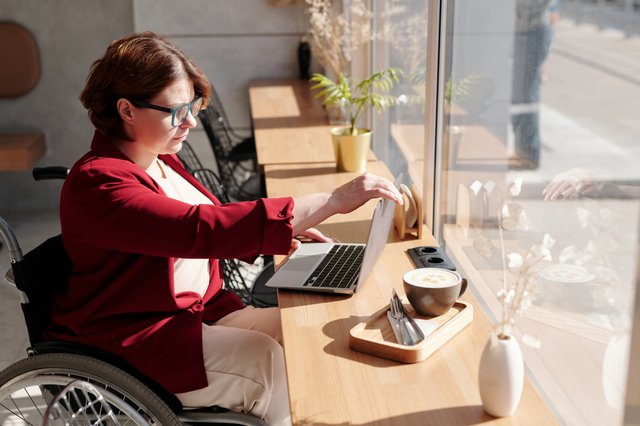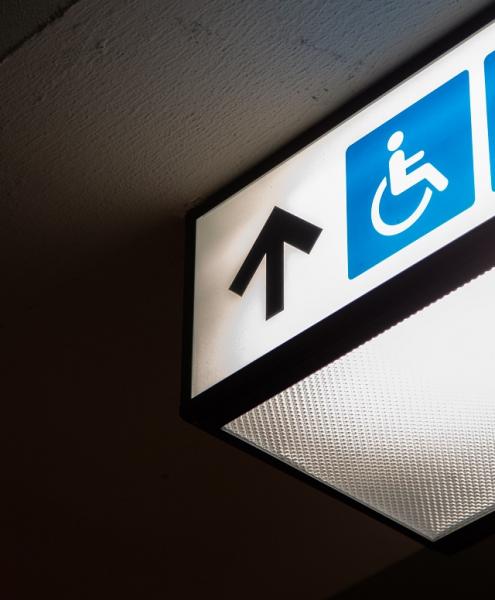New Disability Toolkit for developing policy; reports on disability and violence
Wed 23 Mar 2022
The Office for Disability Issues (ODI) has launched a new online tool to explore disability implications when developing policy. Reports from the Human Rights Commission provide a roadmap and recommendations for a Te Tiriti and human rights approach to preventing and responding to violence for tāngata whaikaha Māori and disabled peoples.

Disability Toolkit for Policy
The Disability Toolkit for Policy is designed to support policy-makers and decision-makers to think about disability implications throughout the process of developing policy. The Office for Disability Issues (ODI) said: "For New Zealand to be a non-disabling society, we need policy and decision-makers to consider how their interventions can create a place where disabled people have an equal opportunity to achieve their goals and aspirations. This toolkit will show you how."
This Toolkit is designed to help practitioners:
- consider the needs and aspirations of disabled people and their family/whānau,
- explore the disability impacts of policy throughout the development process,
- prompt thinking by asking key questions and providing examples and links to useful information and data,
- incorporate Te Tiriti o Waitangi, the New Zealand Disability Strategy, and New Zealand’s obligations under the United Nations Convention on the Rights of Persons with Disabilities (UNCRPD) into policy and practice.
The Toolkit provides guidance on seven steps:
- Thinking about disability issues at the start of the policy process
- Engaging with the disability community
- Embedding disability into the policy issue
- Incorporating disability into the policy options
- Incorporating disability into Cabinet papers, information and communications
- Considering disability throughout implementation
- Considering how disability outcomes can be monitored and evaluated.
ODI recommends reading through the whole Toolkit to learn and prepare and notes:
"More time may be required to incorporate your insights into action (e.g. engaging with disabled people or implementing your policies in different ways). While you may not be involved in every step of the policy process, it is worth considering each step and being clear with colleagues on the desired outcomes (for example, those involved in delivery, implementation or monitoring of the policy)."
The Toolkit is designed to be used alongside similar tools such as the Ministry for Women’s Bringing Gender In. The ODI media release noted the Toolkit "...goes toward addressing recommendation 12 of the Independent Monitoring Mechanism’s Making Disability Rights Real 2014-2019 report."
Reports on tāngata whaikaha Māori and disabled peoples' experience of violence in Aotearoa
In December 2021, Disability Rights Commissioner Paula Tesoriero launched two new reports from the Human Rights Commission exploring experiences of violence and abuse among tāngata whaikaha Māori and disabled people.
The reports, Whakamanahia Te Tiriti, Whakahaumarutia te Tangata (Honour the Treaty, Protect the Person) and Whakamahia te Tūkino kore Ināianei, ā Muri Ake Nei (Acting Now for a Violence and Abuse Free Future), outline the evidence on the causes and impacts of violence including racism and colonisation, and abuse against tāngata whaikaha Māori and disabled people. The reports outline gaps in systems, knowledge and services and set out a roadmap for systemic change. Together the reports make 20 recommendations.
In launching the reports, Paula Tesoriero said "These reports provide, for the first time, an evidence base and graphic illustration of the violence and abuse suffered by tāngata whaikaha Māori and disabled people. They show a continued absence of effective responses to reduce its incidence."
She went on to say:
"In Aotearoa, racism and ableism intersect to create unique additional risks for tāngata whaikaha Māori who must navigate racism, discrimination and other biases."
"This has resulted in the suppression of rangatiratanga along with the many disabling effects on the ability of tāngata whaikaha Māori to define themselves and their own lives."
Minister Davidson responded to the reports saying:
"Disabled people have highlighted to me the lack of specialist family violence and sexual violence services and supports, the lack of a nationally consistent and mandated safeguarding approach, and the need for more data and research to make visible their experiences.
They emphasised that disabled people need to be at the decision making tables.
We also need to address the intergenerational impacts of colonisation and racism in order for us to eliminate violence."
For more information about disabled people and violence see the following resources:
Aotearoa New Zealand
White Ribbon created an infographic and video with Disability Rights Commissioner Paula Tesoriero to highlight experiences of violence for people with disabilities drawing on new research published this year
Prevalence of nonpartner physical and sexual violence against people with disabilities (2021) by Zarintaj Malihi, Janet L Fanslow, Ladan Hashemi, Pauline Gulliver and Tracey McIntosh
Lifetime prevalence of intimate partner violence and disability: Results from a population-based study in New Zealand (2021) by Janet L Fanslow, Zarintaj Malihi, Ladan Hashemi, Pauline Gulliver and Tracey McIntosh
Key findings from the 3rd cycle of the NZ Crime and Victimisation Survey: What it means for disabled people (2021) from the Office for Disability Issues
"Everything, with us": Working with people with disabilities (2016) from the Good Practice Responding to Sexual Violence - Guidelines for mainstream crisis support services for survivors from TOAH-NNEST (Te Ohaakii a Hine-National Network Ending Sexual Violence Together)
International
Women with disability and domestic and family violence: a guide for policy and practice (2021), 30 ways to make your service more accessible (2021) and Creating an inclusion action plan (2021) from People with Disability Australia and Domestic Violence New South Wales
Changing the landscape: A national resource to prevent violence against women and girls with disabilities (2022) from Our Watch
Related news
The Public Service Commission is now advertising for the role of Te Tumu Whakahaere | Chief Executive - Ministry for Disabled People. HardyGroup is working in partnership with the Disabled Persons Assembly (DPA) to ensure the recruitment process is accessible. Applications close 11.59pm on Tuesday 5 April 2022.
Disability leaders and advocates have raised concerns about the appointment of a nondisabled person to the Director role of the establishment unit for the new Ministry for Disabled People. Disabled Leadership Now (DLN) organised an online rally and wrote to the Chief Executive of the Ministry of Social Development and the Director General of Health calling for action. Disabled Leadership Now is a grass roots organisation comprising of disabled volunteers working to ensure that disabled people lead, and are present at every level of the new Ministry.
The Ministry for Social Development has announced the members of the Community Steering Group responsible for supporting and guiding the establishment of the new Ministry for Disabled People.
Disability advocates and leaders have also raised concerns about the process for contributing to the government's proposal on accessibility legislation. In October 2021, the Government released a Cabinet Paper proposing a framework for accessibility. For more information, see the Access Alliance, a movement comprised of organisations from the disability and neurodiversity sectors, working with a business champions and individual supporters, to advocate for legislation.
Update: AmplifyU is a new online engagement tool developed and managed by disabled people for disabled people to engage with the work to establish the new ministry. There is also an AmplifyU Facebook page.
Related Media
Harming the disabled with the words we use, Stuff, 11.03.2022
Disability Ministry's ongoing costs and funding kept secret, RNZ, 29.01.2022
Image: cottonbro from Pexels






